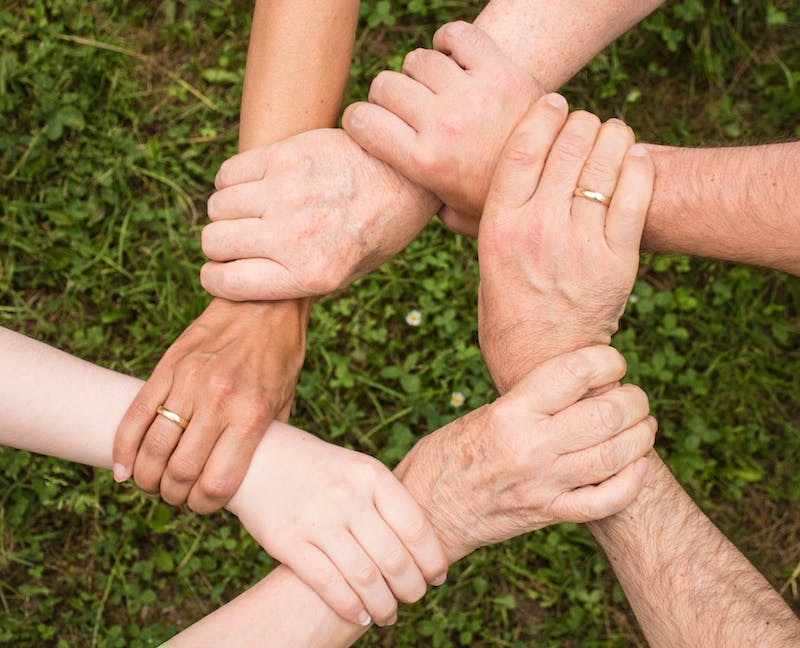Sometimes it's hard to see when you should take action in terms of safeguarding with patients. Ruth reflects on her own experiences, talking about the self-doubt that people with a duty of care often have when it comes to looking out for others.
 It can be hard to tell if and when you should interfere when it comes to patient safety. However, if you suspect something is up then it's good practice to make a safeguarding referral.
It can be hard to tell if and when you should interfere when it comes to patient safety. However, if you suspect something is up then it's good practice to make a safeguarding referral.As nurses, we are trained to be the patient’s advocate and to look for signs of abuse and mistreatment on those that we care for.
Sometimes we are confronted with situations where we are left feeling uneasy by what we have seen or heard and find ourselves questioning ‘is this abuse or is this just the way this family communicate with each other?’
Sometimes colleagues will express concerns and will seek peer support and advice as to whether it is a safeguarding concern or maybe we’re just being overzealous and making assumptions.
Recently I have found myself raising safeguarding concerns for a variety of reasons.
An unusual bill in a patient’s home that they were unaware of; a family with multiple low-level concerns that became a bigger problem as the pieces fell into place; a patient with capacity that the family disagreed with the choice of care provided.
Although we undergo Safeguarding training, nothing quite prepares you for the first time you have to make a decision to raise a concern.
Much like a cardiac arrest – you know what you’re looking at, you know what to do, you still have the ‘rabbit caught in headlights’ moment, even if it lasts only a millisecond.
 'We are still a long way from getting the joined up service where safeguarding is at the forefront of our minds.'
'We are still a long way from getting the joined up service where safeguarding is at the forefront of our minds.'I can remember the first safeguarding I raised, well over 15yrs ago. I was an A&E nurse.
A baby was crying and had been brought in by the parents. They said the baby wouldn’t settle. I undressed the baby and found a large bruised handprint across the base of its lower back.
A straightforward safeguarding referral. Simple.
Unfortunately, they aren’t always that straightforward. Before raising concerns, there is usually a flash of self-doubt.
Is it me?
Am I judging something that I don’t have enough evidence for?
Is this the right thing to do?
Should I seek advice from a senior person first?
The answer to these questions is always situation specific, but when something makes you uneasy or you just aren’t sure, then it is always worth discussing it with either the safeguarding lead or duty social worker to run through your concerns.
It may be that there have been previous concerns about the patient/carers or family members and your piece of information is the last piece in a puzzle.
It may also be nothing to be concerned about, but you have acted appropriately by raising a concern.
There is no doubt that we have come a long way since Victoria Climbie back in the early ‘00’s but with cases such as Baby P, Operation Bullfinch and the recent convictions of offenders as those from the recent Rotherham case, we are still a long way from getting the joined up service where safeguarding is at the forefront of our minds.
Then there are the cases of elder abuse.
In a way, these cases tend to be more insidious as they don’t garner the same attention as those involving children.
Things can be explained away as the patient being a ‘poor historian.’
Assumptions get made when chains of information occur, and it can become like Chinese whispers where a key piece of information is lost or distorted with each person’s translation of events.
Then there can be the deliberate misdirection of professionals by family members who can convincingly persuade staff that they have authority over a patient’s affairs and yet no evidence is produced to that effect.
In my cases, social services investigated and supported the family and individuals involved.
Safeguarding doesn’t always mean taking children away or pointing fingers of blame when there is misguided family involvement.
It’s there for patient protection and to support vulnerable families and individuals.
It doesn’t stop you doubting yourself though.
Our blog post, patient centred care in mental health, also discusses patient safety and the code of conduct all nurses are bound to in relation to safeguarding.







About this contributor
Adult Nurse
Since qualifying in Adult Nursing in 2002 I’ve worked as a specialist nurse with the NHS, and in the private sector as a general nurse and sessional nurse for a hospital at home team (I’ve been about a bit!).
More by this contributorWant to get involved in the discussion?
Log In Subscribe to comment